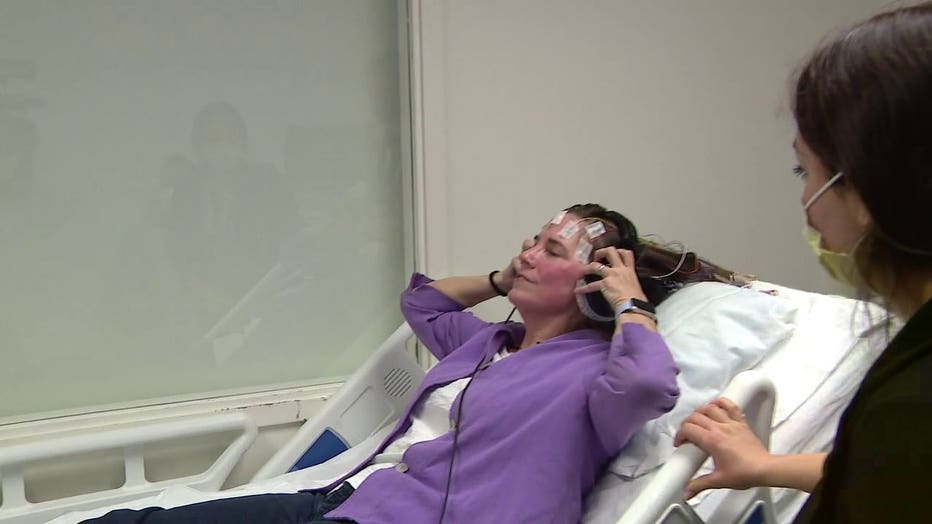New UCLA music therapy study giving dementia patients new hope
UCLA music therapy study giving dementia patients new hope
A mother of two who is a dementia patient traveled thousands of miles hoping to get relief from a new study at UCLA. The key? Music.
Nothing was going to stop Kary Harmon and her husband, Jason, from traveling from their home state of Alaska to Los Angeles once they learned of UCLA's new music therapy study for dementia patients.
"I don’t have much to do for anyone else. I like to help but my body doesn’t let me do it," said Harmon, who was in her late 40s when she started experiencing language and memory problems, and nighttime hallucinations.
The mother of two, now 56 years old, and diagnosed with dementia with Lewy Bodies, had to quit her job as a billing specialist because the numbers that once came so easily- just didn’t anymore.
But there’s new hope in a new music therapy study now underway at UCLA's Easton Center for Alzheimer's Research.
UCLA program uses music to treat dementia
One woman traveled all the way from Alaska to receive the treatment.

"Music has a way of engaging parts of the brain that are not accessible through other means," says Dr. Keith Vossel, UCLA Neurology Professor, who runs the study.
Dr. Vossel is studying patients over 50, some healthy, others like Harmon experiencing mild to moderate dementia symptoms.
The goal?
"To see if this music stimulation can actually improve cognitive functions," says Dr. Vossel.
The music therapy, paired with light stimulation, lasts one hour. Ideally, a patient will undergo daily sessions over six months or longer. The patient is wired with electrodes, allowing Dr. Vossel and his team to record and monitor the brain waves as the patient listens to music.
Perhaps what strikes a chord most with patients are fact that the study is free and the patients get to choose their playlist.
Harmon's includes Journey’s "Don’t Stop Believin’" and judging by her initial readings, the Harmon’s shouldn’t.
Dr. Vossel explains the smaller, tighter the brain waves, like Harmon's, the better.
"This is a sign that her brain is still functioning quite well," Dr. Vossel said.
Good news for the Harmons and 6 million-plus Americans suffering from Alzheimer’s, the most common form of dementia.
While the Harmons may not yet have concrete answers, they now have hope in the sound of music that may just make their journey a little more comfortable.
For more information about the music study, log onto: https://eastonad.ucla.edu/research/clinical-trials-and-observational-studies/observational-studies/music.

